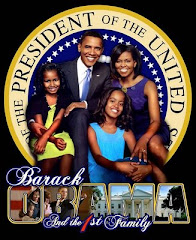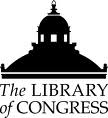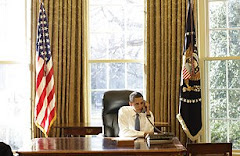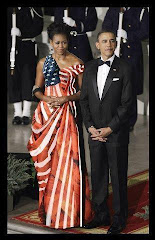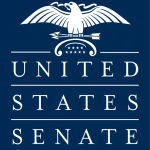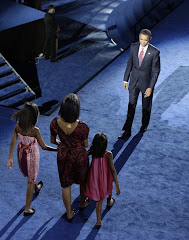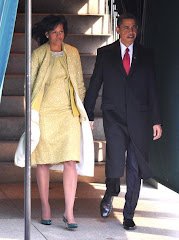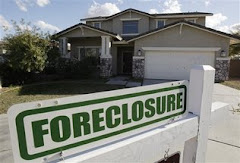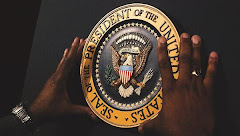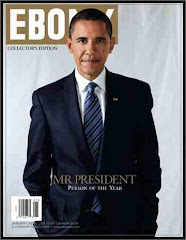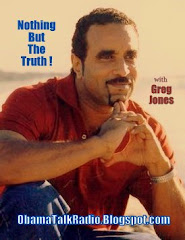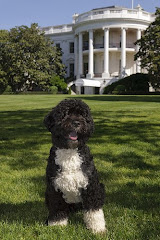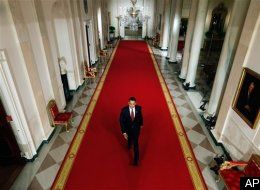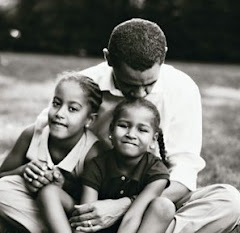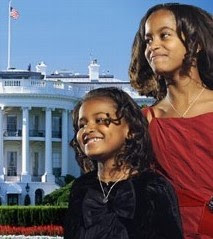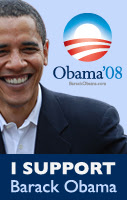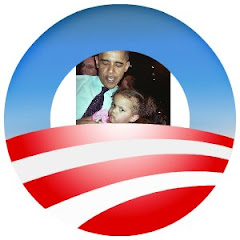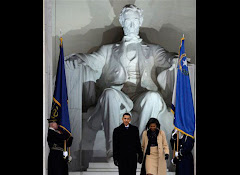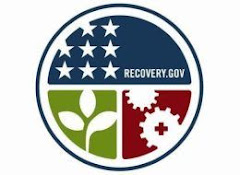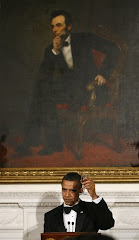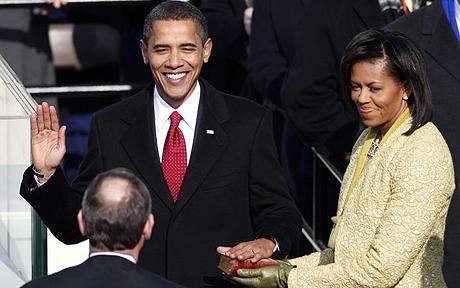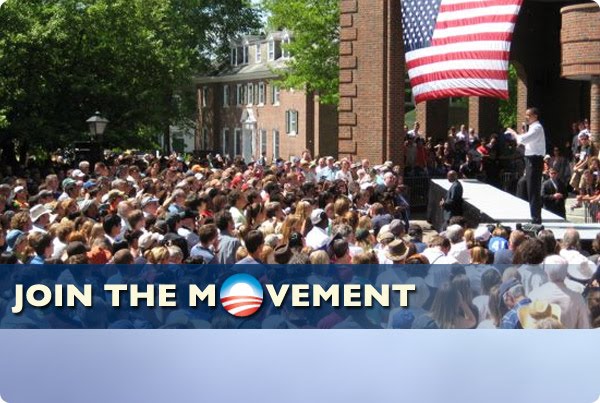
THE WHITE HOUSE
Office of the Press Secretary
_________________________________________________________________________
April 3, 2009
REMARKS BY PRESIDENT OBAMA
AT STRASBOURG TOWN HALL
Rhenus Sports Arena
Strasbourg, France
2:18 P.M. (Local)
PRESIDENT OBAMA: Thank you so much. (Applause.) Good afternoon. Bon après-midi. (Applause.) And guten tag. It is a great honor for me to be here in Europe, to be here in Strasbourg. I want to make just a few acknowledgements. I want to thank the President of France, Nicolas Sarkozy, for being such a terrific friend. I want to thank his wife, Madam Sarkozy. They just hosted us at the palace and could not have been more gracious.
I want to thank the Charge d'Affaires, Mark Pekala, and his wife, Maria, who were helping to organize us; Vincent Carver, who's the Counsel General in Strasbourg. And I want to thank the Mayor of Strasbourg, Roland Ries, for his hospitality. (Applause.)
It is wonderful to be here with all of you and to have an opportunity not only to speak to you but also to take some questions. You know, oftentimes during these foreign trips you see everything from behind a window, and what we thought was important was for me to have an opportunity to not only speak with you but also to hear from you, because that's ultimately how we can learn about each other. But before I take some questions, I hope you don't mind me making a few remarks about my country and yours; the relationship between the United States and the relationship between Europe.
Strasbourg has been known throughout history as a city at the crossroads. Over thousands of years, you straddled many kingdoms and many cultures. Two rivers are joined here. Two religions have flourished in your churches. Three languages comprise an ancient oath that bears the city's name. You served as a center of industry and commerce, a seat of government and education, where Goethe studied and Pasteur taught and Gutenberg imagined his printing press.
So it's fitting because we find ourselves at a crossroads as well -- all of us -- for we've arrived at a moment where each nation and every citizen must choose at last how we respond to a world that has grown smaller and more connected than at any time in its existence.
We've known for a long time that the revolutions in communications and technology that took place in the 20th century would hold out enormous promise for the 21st century -- the promise of broader prosperity and mobility; of new breakthroughs and discoveries that could help us lead richer and fuller lives. But the same forces that have brought us closer together have also given rise to new dangers that threaten to tear our world apart -- dangers that cannot be contained by the nearest border or the furthest ocean.
Even with the Cold War now over, the spread of nuclear weapons or the theft of nuclear material could lead to the extermination of any city on the planet. And this weekend in Prague, I will lay out an agenda to seek the goal of a world without nuclear weapons. (Applause.)
We also know that the pollution from cars in Boston or from factories in Beijing are melting the ice caps in the Arctic, and that that will disrupt weather patterns everywhere. The terrorists who struck in London, in New York, plotted in distant caves and simple apartments much closer to your home. And the reckless speculation of bankers that has new fueled a global economic downturn that's inflicting pain on workers and families is happening everywhere all across the globe.
The economic crisis has proven the fact of our interdependence in the most visible way yet. Not more than a generation ago, it would have been difficult to imagine that the inability of somebody to pay for a house in Florida could contribute to the failure of the banking system in Iceland. Today what's difficult to imagine is that we did not act sooner to shape our future.
Now, there's plenty of blame to go around for what has happened, and the United States certainly shares its -- shares blame for what has happened. But every nation bears responsibility for what lies ahead, especially now, for whether it's the recession or climate change, or terrorism, or drug trafficking, poverty, or the proliferation of nuclear weapons, we have learned that without a doubt there's no quarter of the globe that can wall itself off from the threats of the 21st century.
The one way forward -- the only way forward -- is through a common and persistent effort to combat fear and want wherever they exist. That is the challenge of our time -- and we can not fail to meet it, together.
Now, we take for granted the peace of a Europe that's united, but for centuries Strasbourg has been attacked and occupied and claimed by the warring nations of this continent. Now, today in this city, the presence of the European Parliament and the Council of Europe stand as symbols of a Europe that is united peaceful and free. (Applause.)
Now, we take this peace and prosperity for granted, but this destination was not easily reached, nor was it predestined. The buildings that are now living monuments to European unity were not drawn from simple blueprints. They were born out of the blood of the first half of the 20th century and the resolve of the second. Men and women had to have the imagination to see a better future, and the courage to reach for it. Europeans and Americans had to have the sense of common purpose to join one another, and the patience and the persistence to see a long twilight struggle through.
It was 61 years ago this April that a Marshall Plan to rebuild Europe helped to deliver hope to a continent that had been decimated by war. Amid the ashes and the rubble that surrounded so many cities like this one, America joined with you in an unprecedented effort that secured a lasting prosperity not just in Europe, but around the world -- on both sides of the Atlantic.
One year later, exactly 60 years ago tomorrow, we ensured our shared security when 12 of our nations signed a treaty in Washington that spelled out a simple agreement: An attack on one would be viewed as an attack on all. Without firing a single shot, this Alliance would prevent the Iron Curtain from descending on the free nations of Western Europe. It would lead eventually to the crumbling of a wall in Berlin and the end of the Communist threat. Two decades later, with 28 member nations that stretched from the Baltic to the Mediterranean, NATO remains the strongest alliance that the world has ever known.
At the crossroads where we stand today, this shared history gives us hope -- but it must not give us rest. This generation cannot stand still. We cannot be content merely to celebrate the achievements of the 20th century, or enjoy the comforts of the 21st century; we must learn from the past to build on its success. We must renew our institutions, our alliances. We must seek the solutions to the challenges of this young century.
This is our generation. This is our time. And I am confident that we can meet any challenge as long as we are together. (Applause.)
Such an effort is never easy. It's always harder to forge true partnerships and sturdy alliances than to act alone, or to wait for the action of somebody else. It's more difficult to break down walls of division than to simply allow our differences to build and our resentments to fester. So we must be honest with ourselves. In recent years we've allowed our Alliance to drift. I know that there have been honest disagreements over policy, but we also know that there's something more that has crept into our relationship. In America, there's a failure to appreciate Europe's leading role in the world. Instead of celebrating your dynamic union and seeking to partner with you to meet common challenges, there have been times where America has shown arrogance and been dismissive, even derisive.
But in Europe, there is an anti-Americanism that is at once casual but can also be insidious. Instead of recognizing the good that America so often does in the world, there have been times where Europeans choose to blame America for much of what's bad.
On both sides of the Atlantic, these attitudes have become all too common. They are not wise. They do not represent the truth. They threaten to widen the divide across the Atlantic and leave us both more isolated. They fail to acknowledge the fundamental truth that America cannot confront the challenges of this century alone, but that Europe cannot confront them without America.
So I've come to Europe this week to renew our partnership, one in which America listens and learns from our friends and allies, but where our friends and allies bear their share of the burden. Together, we must forge common solutions to our common problems.
So let me say this as clearly as I can: America is changing, but it cannot be America alone that changes. We are confronting the greatest economic crisis since World War II. The only way to confront this unprecedented crisis is through unprecedented coordination.
Over the last few days, I believe that we have begun that effort. The G20 summit in London was a success of nations coming together, working out their differences, and moving boldly forward. All of us are moving aggressively to restore growth and lending. All of us have agreed to the most substantial overhaul of our international financial system in a generation. No one is exempt. No more will the world's financial players be able to make risky bets at the expense of ordinary people. Those days are over. We are ushering a new era of responsibility, and that is something we should all be proud of. (Applause.)
As we take these steps, we also affirm that we must not erect new barriers to commerce; that trade wars have no victors. We can't give up on open markets, even as we work to ensure that trade is both free and fair. We cannot forget how many millions that trade has lifted out of poverty and into the middle class. We can't forget that part of the freedom that our nations stood for throughout the Cold War was the opportunity that comes from free enterprise and individual liberty.
I know it can be tempting to turn inward, and I understand how many people and nations have been left behind by the global economy. And that's why the United States is leading an effort to reach out to people around the world who are suffering, to provide them immediate assistance and to extend support for food security that will help them lift themselves out of poverty.
All of us must join together in this effort, not just because it is right, but because by providing assistance to those countries most in need, we will provide new markets, we will drive the growth of the future that lifts all of us up. So it's not just charity; it's a matter of understanding that our fates are tied together -- not just the fate of Europe and America, but the fate of the entire world.
And as we restore our common prosperity, we must stand up for our common security. As we meet here today, NATO has still embarked on its first mission overseas in Afghanistan, and my administration has just completed a review of our policy in that region.
Now, I understand that this war has been long. Our allies have already contributed greatly to this endeavor. You've sent your sons and daughters to fight alongside ours, and we honor and respect their service and sacrifice.
And I also know that there's some who have asked questions about why are we still in Afghanistan? What does this mean? What's its purpose? Understand we would not deploy our own troops if this mission was not indispensable to our common security. As President, I can tell you there's no decision more difficult, there's no duty more painful, than signing a letter to the family of somebody who has died in war.
So I understand that there is doubt about this war in Europe. There's doubt at times even in the United States. But know this: The United States of America did not choose to fight a war in Afghanistan. We were attacked by an al Qaeda network that killed thousands on American soil, including French and Germans. Along the border of Afghanistan and Pakistan, those terrorists are still plotting today. And they're -- if there is another al Qaeda attack, it is just as likely, if not more, that it will be here in Europe in a European city.
So I've made a commitment to Afghanistan, and I've asked our NATO partners for more civilian and military support and assistance. We do this with a clear purpose: to root out the terrorists who threaten all of us, to train the Afghan people to sustain their own security and to help them advance their own opportunity, and to quicken the day when our troops come home.
We have no interest in occupying Afghanistan. We have more than enough to do in rebuilding America. (Applause.) But this is a mission that tests whether nations can come together in common purpose on behalf of our common security. That's what we did together in the 20th century. And now we need an alliance that is even stronger than when it brought down a mighty wall in Berlin.
That's why we applaud France's decision to expand and deepen its participation in NATO, just as we support a strong European defense. That's why we welcome Croatia and Albania into the fold. And that is why we must ensure that NATO is equipped and capable of facing down the threats and challenges of this new age. This is one of our central tasks.
And we also know that in the 21st century, security is more complex than military power. This is the generation that must also stop the spread of the pollution that is slowly killing our planet, from shrinking coastlines and devastating storms to widespread misery and famine and drought. The effects of climate change are now in plain sight.
Europe has acted with a seriousness of purpose that this challenge demands. And in the last few months I'm proud to say that America has begun to take unprecedented steps to transform the way that we use energy. We appointed a special envoy to help us lead a global effort to reduce the carbon that we send in the atmosphere.
But we all know that time is running out. And that means that America must do more. Europe must do more. China and India must do more. Rolling back the tide of a warming planet is a responsibility that we have to ourselves, to our children, and all of those who will inherit God's creation long after we are gone. So let us meet that responsibility together. I am confident that we can meet it. But we have to begin today. (Applause.)
And let us resolve that when future generations look back on ours, they will be able to say that we did our part to make this world more peaceful.
It's perhaps the most difficult work of all to resolve age-old conflicts, to heal ancient hatreds, to dissolve the lines of suspicion between religions and cultures, and people who may not look like us, or have the same faith that we do, or come from the same place. But just because it's difficult does not make the work any less important. It does not absolve us from trying.
And to that end, America will sustain our effort to forge and secure a lasting peace between the Israelis and the Palestinians. I've sent a clear message to the leaders and peoples of Iran that while we have real differences, we also have mutual interests, and we seek new engagement based on mutual respect. And it is in that spirit that America and Europe must reach out to the vast majority of Muslims in our nations and in all nations. We seek only hope of peace and partnership, and the opportunity of a better life.
We cannot simply solve these conflicts militarily. We have to open our minds and we have to open our hearts to the differences among us and the commonalities between us. With every threat that we face, a new day is possible. We can't get there alone. As it was in the darkest days after World War II, when a continent lay in ruins and an atomic cloud had settled over the world, we must make the journey together.
We know that transformational change is possible. We know this because of three reasons: First, because, for all our differences, there are certain values that bind us together and reveal our common humanity: the universal longing to live a life free from fear, and free from want; a life marked by dignity and respect and simple justice.
Our two republics were founded in service of these ideals. In America, it is written into our founding documents as "life, liberty, and the pursuit of happiness." In France: "Liberté" -- (applause) -- absolutely -- "egalité, fraternité." (Applause.) Our moral authority is derived from the fact that generations of our citizens have fought and bled to uphold these values in our nations and others.
And that's why we can never sacrifice them for expedience's sake. That's why I've ordered the closing of the detention center in Guantanamo Bay. (Applause.) That's why I can stand here today and say without equivocation or exception that the United States of America does not and will not torture. (Applause.)
The second way that we can turn challenge into opportunity is through our persistence in the face of difficulty. In an age of instant gratification, it's tempting to believe that every problem can and should be solved in the span of a week. When these problems aren't solved, we conclude that our efforts to solve them must have been in vain. But that's not how progress is made. Progress is slow. It comes in fits and starts, because we try and we fail and then we try something else. And when there are setbacks and disappointments we keep going. We hold firm to our core values, and we hold firm to our faith in one another.
The third reason we know that we can change this world is because of men and women like the young people who are here today. Each time we find ourselves at a crossroads, paralyzed by worn debates and stale thinking, the old ways of doing things, a new generation rises up and shows the way forward. As Robert Kennedy once told a crowd of students in South Africa, "It is a revolutionary world that we live in, and thus, it is young people who must take the lead." (Applause.) Because young people are unburdened by the biases or prejudices of the past. That is a great privilege of youth. But it's also a tremendous responsibility because it is you who must ultimately decide what we do with this incredible moment in history.
We just emerged from an era marked by irresponsibility, and it would be easy to choose the path of selfishness or apathy, of blame or division. But that is a danger that we cannot afford. The challenges are too great. It is a revolutionary world that we live in, and history shows us that we can do improbable, sometimes impossible things. We stand here in a city that used to stand at the center of European conflict; only now it is the center of European union. We did that together. Now we must not give up on one another. We must renew this relationship for a new generation, in a new century. We must hold firm to our common values, hold firm to our faith in one another. Together, I'm confident that we can achieve the promise of a new day.
Thank you very much. (Applause.) Thank you. Thank you very much. (Applause.) Please, everybody have a seat. So the way this works -- do we have microphones in the audience? Yes? So just raise your hand if you want a question, and I will call on you. I think we have some translators. If you want to speak French and German, my French and German are terrible. But we have people who speak very good French and very good German who will translate your question, and translate my answer. And I will try to get as many questions as I can get in, in the remaining 20 minutes or so that we have.
And I will start with this young lady right here. Yes, you, right there. (Laughter.) Please introduce yourself. Hold on, I can't hear you yet. Can we increase the sound on the mic? Let's try again. Oh, I called -- now, I just want to say I did not call on the American on purpose. (Laughter.)
Q (Inaudible.)
PRESIDENT OBAMA: Well, after only two months, that's kind of a big question. (Laughter.) But here's what I would like to see. And, look, you aim high knowing that you'll make mistakes and sometimes you'll fall short.
Number one, my first task is to restore the economy of the United States, but, in concert with other nations, to restore global economic growth. That's my number one task, because we are going through the worst crisis since the 1930s.
That means that not only do we have to fix the banking system, put common-sense regulations in place to prevent a crisis like this from ever happening again, making sure that we are keeping trade relationships between countries open -- but it also means helping developing countries and poor countries who, through no fault of their own, have been devastated by this crisis, and if we allow them to collapse will ultimately be a drag on our ability to prosper.
Emerging markets have actually been the drivers of economic growth over the last several years. If we can get millions of Chinese to prosper, that is ultimately good for us. If we can get all the Indians in poverty to suddenly be able to buy a refrigerator or send their children to college, that will raise everybody's living standards, because those will be enormous new markets for all of us.
So what I want to be able to do is not only fix the immediate crisis, but, working in partnership with other countries, create a path for sustainable, responsible growth. And I think we can do that. There are a lot of people who benefit from globalization, but there are also people who have been harmed by globalization. Globalization in and of itself can be good, but can also be destructive.
If we create the right framework so that what happened in the banking system can't happen again, then globalization can be good for everybody and lift everybody's living standards up. And by the way, history has shown us that we are most vulnerable to war and conflict when people are desperate economically. And nobody knows that history more than Europe.
So that would be number one. Number two is I would like to be able to say that as a consequence of my work, that we drastically lessened the threat of not only terrorism but also nuclear terrorism. And we can't reduce the threat of a nuclear weapon going off unless those who possess the most nuclear weapons -- the United States and Russia -- take serious steps to actually reduce our stockpiles.
So we are going to -- (applause) -- so we want to pursue that vigorously in the years ahead. And I had a excellent meeting with President Medvedev of Russia to get started that process of reducing our nuclear stockpiles, which will then give us greater moral authority to say to Iran, don't develop a nuclear weapon; to say to North Korea, don't proliferate nuclear weapons.
In my own country, what I think is very important is that we finally get a health care system that is reliable and cost-effective. That's something that -- (applause) -- you know, that's a social safety net that exits in almost all of Europe that doesn't exist in the United States. You have millions of people who work hard every single day, but if they get sick they could potentially lose everything. And in a country as wealthy as ours, that's not acceptable to me.
So we are going to work hard to make sure that we have a health care system that won't be identical to what you have in Europe -- each country has its own traditions and approaches -- but that provides people quality, affordable, accessible health care.
And then, I would like to see us in the United States take the lead on a new approach to energy -- because none of the developed countries are going to be able to sustain their growth if we don't start using energy differently, and the world cannot survive all countries using energy in the same ways that we use it.
I was meeting with the Indian Prime Minister yesterday after the summit -- a very good and wise man, Prime Minister Singh -- and he was talking about how Indian growth rates have gone up 9 percent every year. They need to grow at that pace in order to bring hundreds of millions of people in their country out of abject poverty, desperate poverty. They have to grow at a rapid pace.
Now, he actually is committed to working towards dealing with the climate change issue, but he made a very simple point, which is a point that I understood before the meeting and all of us should not forget -- and that is that you cannot expect poor countries, or relatively poor countries, to be partners with us on climate change if we are not taking the lead, given that our carbon footprint is many times more than theirs per capita. I mean, each one of us in the developed world, I don't care how environmentally conscious you are, how green you are -- I'm sure there are some green folks here --
Q Yes!
PRESIDENT OBAMA: Yes! I don't care how green you are, you are -- you have a much bigger carbon footprint than the average Indian, or the average person from China. And so we in developed countries then -- it's critical for us to lead by example by becoming more energy efficient, and we also have to harness technology and shared scientific breakthroughs in order to find more sustainable energy patterns.
Now, I've got other things that I want to do, but that's a pretty long list. Let me go on to a few more questions. (Applause.)
All right, now, I know there's some other Americans in the crowd. (Applause.) But do me a favor, Americans, wait till we get back home and I'll do a town hall there -- (laughter and applause) -- because I want to hear from my French and German and European friends. All right. And -- wait, wait, wait -- this gentleman right here in the glasses.
Q Thank you, Mr. President. I'm a student from Heidelberg, Germany, and -- (applause) -- my mother tongue is German, but my French is not good enough, so I ask my question in English.
You mentioned in your speech that we are a lucky generation. We live in peace, we live in democracies and free states, and we really -- we are very pleased to have this situation in Europe. But this is not the case all over the world, even not in Europe. Look to Belarus, for example; there's an autocratic regime.
And so my question concerns the many children all over the world that live in poverty, under human rights violation. They have hunger, they have no education, and other problems. So what is your strategy, Mr. President, to solve this problem?
PRESIDENT OBAMA: Well, it's an excellent question, and the -- first of all, I think one of the things that we should be very proud of from the G20 summit yesterday was that we made a significant commitment to additional resources through the IMF and other mechanisms to provide assistance to emerging markets and poor countries that, as I said, are bearing the burden of a collapse in the financial system that they had nothing to do with.
The problem is so many of these countries had export-oriented markets, and when the economies contracted in our developing nations, it made them extremely vulnerable. You know, you have a country like Botswana, which is actually a well-managed country that has made enormous progress, but their main revenue generator is diamond sales, and they have literally seen the diamond market collapse -- in part because they couldn't get trade financing, in part because the demand in developed countries has dropped off. So we started to make progress there. Our most important task right now is helping them get through this crisis.
Over the long term, though, we've got to have a strategy that recognizes that the interest of the developed world in feeding the hungry, in educating children, that that's not just charity; it's in our interest. There's not a direct correlation between poverty and violence and conflict and terrorism. But I can tell you that if children have no education whatsoever, if young men are standing idle each and every day, and feel completely detached and completely removed from the modern world, they are more likely, they are more susceptible to ideologies that appeal to violence and destruction.
If you have no health facilities whatsoever in countries in Africa, these days a pandemic can get on a plane and be in Strasbourg or New York City or Chicago overnight. So we better think about making sure that there are basic public health facilities and public health infrastructure in those countries, because we can't shield ourselves from these problems. So that means developed countries have to increase aid, but it also means that the countries who are receiving aid have to use it wisely.
My father was from Kenya. And when I traveled to Kenya -- I had just been elected to the United States Senate -- everybody was very excited and they greeted me as if I was already a head of state, and there were people waving and lining the streets. I went to speak at a university and I had to be honest, which was, America has an obligation to provide Kenya help on a whole range of issues, but if Kenya doesn't solve its own corruption problem, then Kenya will never grow. It will never be able to provide for its own.
And so there's nothing wrong with the developed nations insisting that we will increase our commitments, that we will design our aid programs more effectively, that we will open up our markets to trade from poor countries, but that we will also insist that there is good governance and rule of law, and other critical factors in order to make these countries work.
We spend so much time talking about democracy -- and obviously we should be promoting democracy everywhere we can. But democracy, a well-functioning society that promotes liberty and equality and fraternity, a well-functioning society does not just depend on going to the ballot box. It also means that you're not going to be shaken down by police because the police aren't getting properly paid. It also means that if you want to start a business, you don't have to pay a bribe. I mean, there are a whole host of other factors that people need to -- need to recognize in building a civil society that allows a country to be successful. And hopefully that will -- that approach will be reflected not just in my administration's policies but in the policies that are pursued by international agencies around the world. Okay, good. (Applause.)
All right, right up -- I've got two of you, so you have to choose one. Which one should I call on? (Laughter.) I don't want to -- you're standing right next to each other. Oops. Well, I'm sorry, you know what, he actually called on the -- no, no, no, I was actually pointing down here. I didn't see those two ladies back there. Here you go, this one right here. Go ahead.
Q Well, hello, Mr. President. I'm sorry, I'm from Chicago, excuse me. (Applause.)
PRESIDENT OBAMA: Are you?
Q I'm also a student in the high school -- the international high school --
PRESIDENT OBAMA: Well, no, I'm sorry, if you're American I can't -- (laughter.)
Q I'm also French. (Applause.)
PRESIDENT OBAMA: Wait, wait, wait, wait, hold on. She said she's also French. What does that mean?
Q Double nationality.
PRESIDENT OBAMA: Dual nationality. What do you think, should we let her ask the question? (Applause.) Okay, go ahead.
Q Thank you. Do you think that the economic crisis is an opportunity to restructure our industries in an ecological and sustainable way? And I also was wondering whether the dog was already in the White House or not. (Laughter.)
PRESIDENT OBAMA: The -- we are getting a dog. This is a very important question in the United States -- (laughter) -- what kind of dog we're getting and when we're getting it. It should be there soon.
I do think that in crisis there's always opportunity if it's used properly. So, for example, in the United States we decided to pass a large stimulus package to help growth at a time when the private sector was having a very difficult time.
Now, we could have just spent the money on the same old ways of doing things, but part of what we've decided was, if we're going to be spending a lot of government money anyway, why not spend it to double the amount of renewable energy? Why not spend it on retrofitting existing government buildings so that we drastically reduce their energy consumption? Why not start building high-speed rail?
One thing that, as an American who is proud as anybody of my country, I am always jealous about European trains. And I said to myself, why can't we have -- (applause) -- why can't we have high-speech rail? And so we're investing in that as well.
So on the transportation front, on -- with respect to building construction, on a whole range of issues, we are investing in new technologies that will make us more energy efficient. And that is one of the building blocks that's needed in order for us to reduce our carbon footprint and to work with other countries to achieve the climate change goals that I think are going to be so important.
I'm getting the signal that I've only got time for two more questions. Oh! I'm going to ask that young man in the suit -- because he got dressed up today. I know he doesn't usually wear a suit -- yes. Go ahead, go ahead.
Q I just want to know what do you expect from the French and the European countries regarding the war on terror?
PRESIDENT OBAMA: Good. That's a good question. Look, I think that over the last seven, eight years, as I said in my speech, a lot of tensions have developed between the United States and Europe. And one of the legacies, I hope, from my administration is, is that we start bringing our historic alliance back together in a much more effective way.
Now, that doesn't mean that we're not going to have honest disagreements. All countries have disagreements between themselves. But I think that we can work much more effectively and cooperatively, and maintain that core trust that we have towards each other.
Nowhere have we seen more suspicion than around questions of war and peace and how we respond to terrorism. When 9/11 happened, Europe responded as a true friend would respond to the United States, saying, "We are all Americans." All of us have a stake in ensuring that innocent people who were just going about their business, going to work, suddenly find themselves slaughtered -- all of us have an interest in preventing that kind of vicious, evil act.
But after the initial NATO engagement in Afghanistan, we got sidetracked by Iraq, and we have not fully recovered that initial insight that we have a mutual interest in ensuring that organizations like al Qaeda cannot operate. And I think that it is important for Europe to understand that even though I'm now President and George Bush is no longer President, al Qaeda is still a threat, and that we cannot pretend somehow that because Barack Hussein Obama got elected as President, suddenly everything is going to be okay.
It is going to be a very difficult challenge. Al Qaeda is still bent on carrying out terrorist activity. It is -- don't fool yourselves -- because some people say, well, you know, if we changed our policies with respect to the Israeli-Palestinian conflict, or if we were more respectful towards the Muslim world, suddenly these organizations would stop threatening us. That's just not the case.
It is true that we have to change our behavior in showing the Muslim world greater respect, and changing our language and changing our tone. It is true that we have to work very hard for Israeli-Palestinian peace. But what is also true is that these organizations are willing to kill innocent people because of a twisted, distorted ideology. And we, as democracies and as people who value human life, can't allow those organizations to operate.
So here's the bottom line. The United States has reviewed and redesigned its approach to Afghanistan. We believe that we cannot just win militarily. We have to win through development aid. We have to win through increasing the capacity of the Afghan government to provide basic services to its people and to uphold rule of law. We have to work with the Pakistani government so that they are more trusted by their population and have more control so that they can then go -- help us go after these terrorists. We have to encourage diplomacy in the region.
So it can't just be a military strategy and we will be in partnership with Europe on the development side and on the diplomatic side. But there will be a military component to it, and Europe should not simply expect the United States to shoulder that burden alone. We should not because this is a joint problem and it requires joint effort. (Applause.)
One last point I will make. In dealing with terrorism, we can't lose sight of our values and who we are. That's why I closed Guantanamo. That's why I made very clear that we will not engage in certain interrogation practices. I don't believe that there is a contradiction between our security and our values. And when you start sacrificing your values, when you lose yourself, then over the long term that will make you less secure. When we saw what happened in Abu Ghraib, that wasn't good for our security -- that was a recruitment tool for terrorism. Humiliating people is never a good strategy to battle terrorism.
So we are going to conduct our operations in a way that reflect our best selves and make sure that we are proud. And that, in turn, will allow the Europeans, I think, to feel good about our joint efforts, and also not to have excuses not to participate in those joint efforts. All right? (Applause.)
Okay, last question. All right, let me see here. All right, that young lady in the red right there, right there. She had all her friends helping her out.
Q Thank you. Hi, I'm Enis Otto (phonetic) from Heidelberg. (Applause.) And I'm totally European. (Laughter.) And first of all, I wanted to tell you that your name in Hungarian means "peach."
PRESIDENT OBAMA: Peach?
Q Yes.
PRESIDENT OBAMA: Oh, okay. Well, how about that. I did not know that.
Q Yes, now you know it. And we wanted to know if you -- did you ever regret to have run for presidency till now? I mean, well, did you ever ask yourself, am I sure to manage -- yes.
PRESIDENT OBAMA: Yes, it's a good question. (Applause.) Michelle definitely asked that question. (Laughter.) You know, there are -- there have been times, certainly, during the campaign, and there have been times over the last several months where you feel a lot of weight on your shoulders. There's no doubt about it.
During the campaign, the biggest sacrifice -- the thing that was most difficult was that I was away from my family all the time. In addition to missing -- in addition to being jealous about high-speed rail and the nice trains here, I'm also jealous of the fact that campaigns here only last a few months, whereas in the United States we were running for two years. So I was away from home all the time, and that was very difficult because not only do I have a wonderful wife, but I have two perfect daughters. And so, you know, I missed them a lot. (Applause.)
But the nice thing is now that I'm President, it turns out I have this really nice office in my house called the Oval Office, and so it only takes me a few seconds to get upstairs, and I'm home for dinner every night.
You also lose privacy and autonomy -- or anonymity. You know, it's very frustrating now -- it used to be when I came to Europe, that I could just wander down to a café and sit and have some wine and watch people go by, and go into a little shop, and watch the sun go down. Now I'm in hotel rooms all the time and I have security around me all the time. And so just -- you know, losing that ability to just take a walk, that is something that is frustrating.
But having said all that, I truly believe that there's nothing more noble than public service. Now, that doesn't mean that you have to run for President. (Applause.) You know, you might work for Doctors Without Borders, or you might volunteer for an -- or you might be somebody working for the United Nations, or you might be the mayor of Strasbourg. Right? (Applause.) I mean, they're all -- you might volunteer in your own community.
But the point is that what I found at a very young age was that if you only think about yourself -- how much money can I make, what can I buy, how nice is my house, what kind of fancy car do I have -- that over the long term I think you get bored. (Applause.) I think your life becomes -- I think if you're only thinking about yourself, your life becomes diminished; and that the way to live a full life is to think about, what can I do for others? How can I be a part of this larger project of making a better world?
Now, that could be something as simple as making -- as the joy of taking care of your family and watching your children grow and succeed. But I think especially for the young people here, I hope you also consider other ways that you can serve, because the world has so many challenges right now, there's so many opportunities to make a difference, and it would be a tragedy if all of you who are so talented and energetic, if you let that go to waste; if you just stood back and watched the world pass you by.
Better to jump in, get involved. And it does mean that sometimes you'll get criticized and sometimes you'll fail and sometimes you'll be disappointed, but you'll have a great adventure, and at the end of your life hopefully you'll be able to look back and say, I made a difference.
All right. Thank you, everybody. (Applause.)
END 3:18 P.M. (Local)
B4B








